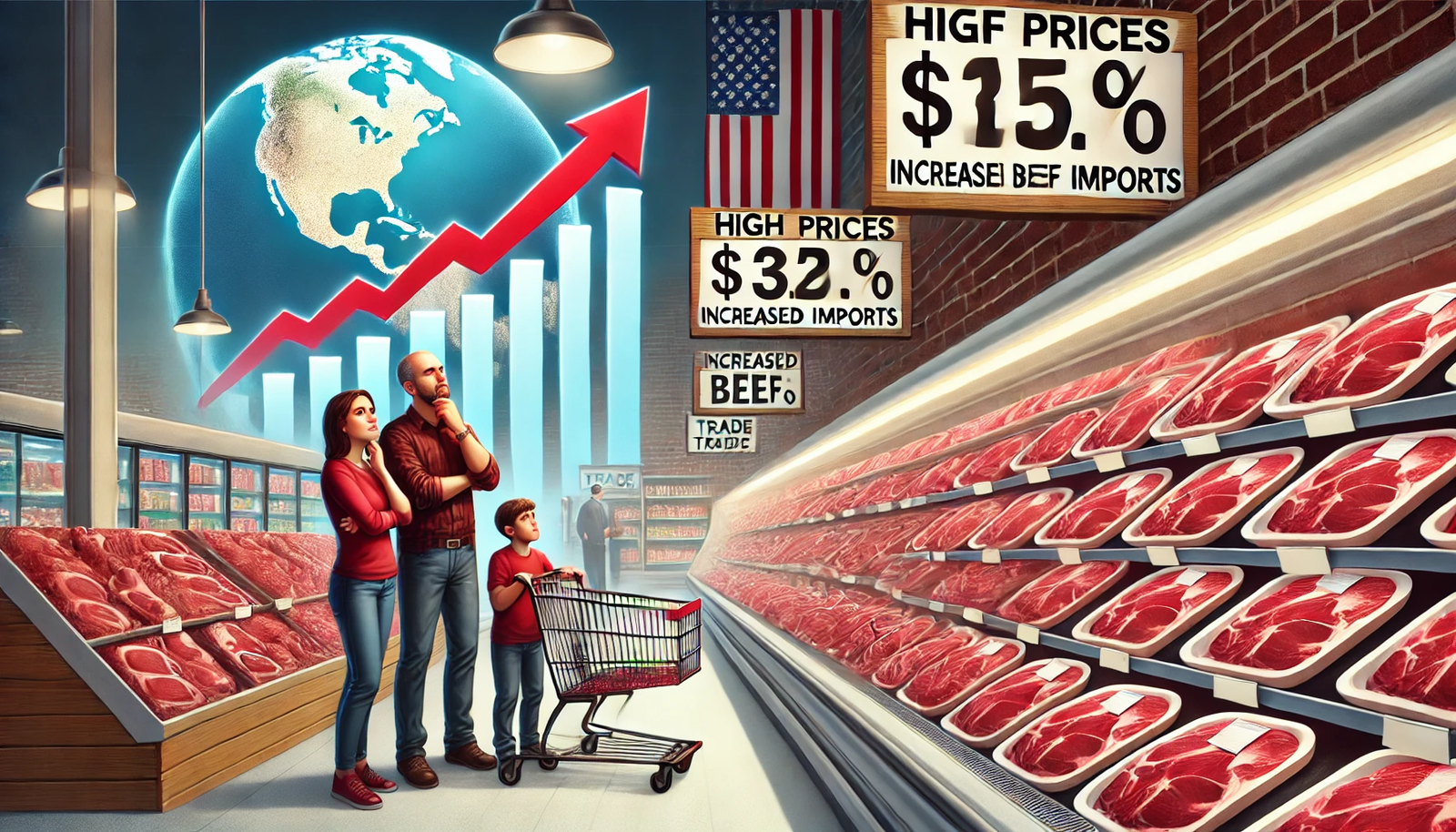|
Edward Harrington Heyburn Audio
Getting your Trinity Audio player ready...
|
In a time of persistent inflation and economic uncertainty, it is clear that the cost of living has become a pressing issue for many Americans. Among these costs, the price of beef—a staple in the American diet—has soared to levels that are unaffordable for many families. This situation is not a coincidence; it is a result of deliberate trade policies that protect the domestic beef industry while driving up costs for consumers. It is time for the United States to increase its quotas on beef imports, allowing more affordable options for Americans, particularly those struggling to make ends meet.
Beef Is Too Expensive for Average Americans
The average price for ground beef in the United States is nearly $5 per pound, while premium cuts like ribeye steak can reach $14 per pound. For many families, these prices make beef an occasional luxury rather than a regular part of their diet. Meanwhile, countries like Argentina and Bolivia produce high-quality beef at significantly lower costs, with prices for similar cuts ranging from $2 to $3 per pound. By increasing import quotas, the United States could provide American consumers access to this affordable beef, easing the financial burden on millions of households.
Taxpayers Are Subsidizing the Beef Industry
The high price of beef in the United States is not merely the result of market forces; it is heavily influenced by federal subsidies that prop up the domestic cattle industry. Between 1995 and 2021, livestock producers received over $11 billion in federal disaster payments alone. Subsidies for feed crops like corn and soybeans, which are essential for beef production, add billions more to the tab. These costs are shouldered by taxpayers, meaning Americans are paying twice for their beef: first through their taxes and again at the checkout line. Allowing more beef imports would introduce competition into the market, potentially reducing the need for such subsidies while benefiting consumers.
The Beef Industry Thrives in Republican States
It is no secret that the beef industry is concentrated in Republican-led states like Texas, Kansas, and Nebraska—states that often oppose policies championed by Democratic leaders, such as climate action, healthcare reform, and social safety nets. Despite this opposition, Democratic policymakers frequently bend over backwards to protect industries in these states, shielding them from competition and reinforcing their economic dominance. This dynamic often leaves Democratic constituencies—urban and suburban families in blue states—paying the price.
By maintaining restrictive quotas on beef imports, Democrats are effectively subsidizing Republican strongholds while neglecting their own base. Increasing beef imports would not only reduce costs for consumers in Democratic-led states but also demonstrate a commitment to prioritizing the economic well-being of their constituents over appeasing industries that actively oppose their policy goals.
Democrats Need to Advocate for Their People
The Democratic Party often prides itself on standing up for working families and advancing economic justice. However, in the case of beef imports, the party has failed to challenge policies that disproportionately harm its base. By advocating for increased beef import quotas, Democrats could take a stand for ordinary Americans who are struggling to afford basic necessities. Such a move would also send a clear message that the party will not perpetuate policies that favor industries concentrated in states that reject their broader agenda.
Conclusion
The United States has an opportunity to lower the cost of living for its citizens by increasing quotas on beef imports. This policy would provide immediate relief to American families, reduce the burden of subsidies on taxpayers, and create a fairer economic playing field. At a time when the Democratic Party faces growing pressure to deliver tangible benefits to its base, this is a chance to take a meaningful step toward economic justice. It is time to prioritize the needs of average Americans over the interests of powerful industries and the states that dominate them.


